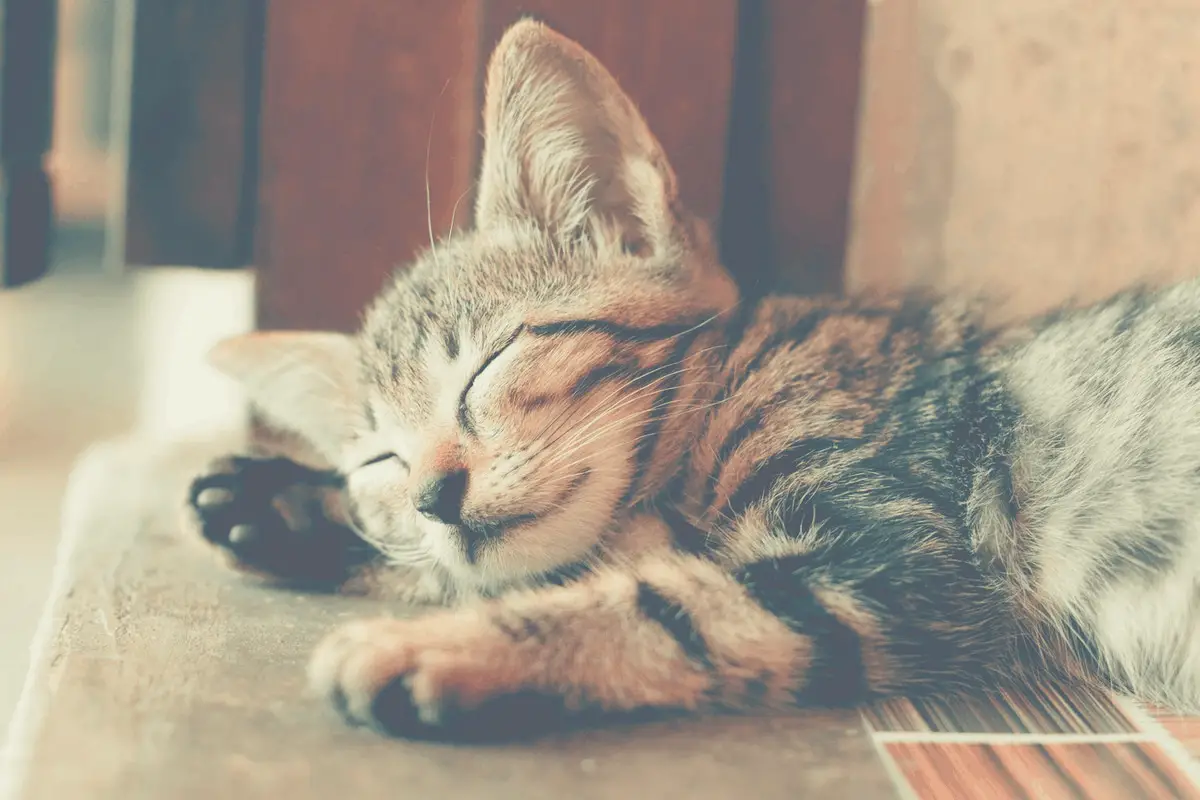Cats are some of the most lively pets in the home thanks to their penchant for playing with members of the household and chasing rodents such as mice away. A day in the life of a healthy cat is never dull and this is why they remain the second most popular domesticated animal in the world.
Seeing your beloved cat showing signs of daytime fatigue can be a stressful period for anyone. This could be a clue that it is being deprived of satisfying nighttime rest. The situation can become more confusing if there have been no visible changes in the feline’s sleep routines.
Sleep Apnea is a leading cause of low-quality daytime and nighttime snoozing in cats but how can you know for sure?
Can cats have sleep apnea? Yes, cats can have sleep apnea. The symptoms are as follows: your cat is showing signs of loud snoring and wheezing during sleep as well as daytime fatigue, lethargy, and grumpiness. This is a sign your cat is at risk of suffering from Obstructive Sleep Apnea. A quick visit to a Veterinary officer can confirm the condition.
Symptoms of Cat Sleep Apnea
It is always a good idea to look out for the signs of sleep apnea before taking the cat to the Vet for proper diagnosis. Remember, Veterinarians will enquire about any physical signs you may have noticed in the pet, and supplying the right answers can help point them in the right direction.
Shall we take a detailed look at the common signs of obstructive sleep apnea in cats?
1. Snoring
Loud snoring is the number one sign that a feline might be suffering from sleep apnea. It typically occurs as a result of vibrations in the nasal passages, throat, parts of the mouth, and other areas of the upper airways while the cat is breathing.
This occurs in felines with relaxed upper airways and the problem can persist regularly until the pet receives the right treatment. Many animal lovers report finding the vibrating sounds of a snoring cat cute but it should not be taken lightly.
2. Daytime Fatigue
It is no secret that cats of all sizes love to sleep and according to experts, they can lie down for 16 hours a day on the average. However, if your beloved feline is sleeping more than usual and showing no additional signs of an infection or illness, this could be as a result of sleep apnea.
The loud snoring and vibrating sounds can impede the cat’s ability to get the necessary level of relaxation. This may lead to daytime fatigue as the cat tries to catch more sleep to repair its batteries.
3. Sleeping Difficulties
Cats are known for being deep sleepers, unlike other animals. According to the Pet Health Network, these pets enjoy deeper slumber 25 percent of the time. In older cats with arthritis and other health problems, it can even accelerate to up to 40 percent of the time spent snoozing.
Note that a cat’s ears twitch and respond to every sound during light sleep even if the eyes remain closed. If a once frequently deep sleeping feline suddenly seems like she only gets light sleep during the day and night, this could be a sign of difficulties related to Obstructive Sleep Apnea.
4. Lethargy and Grumpiness
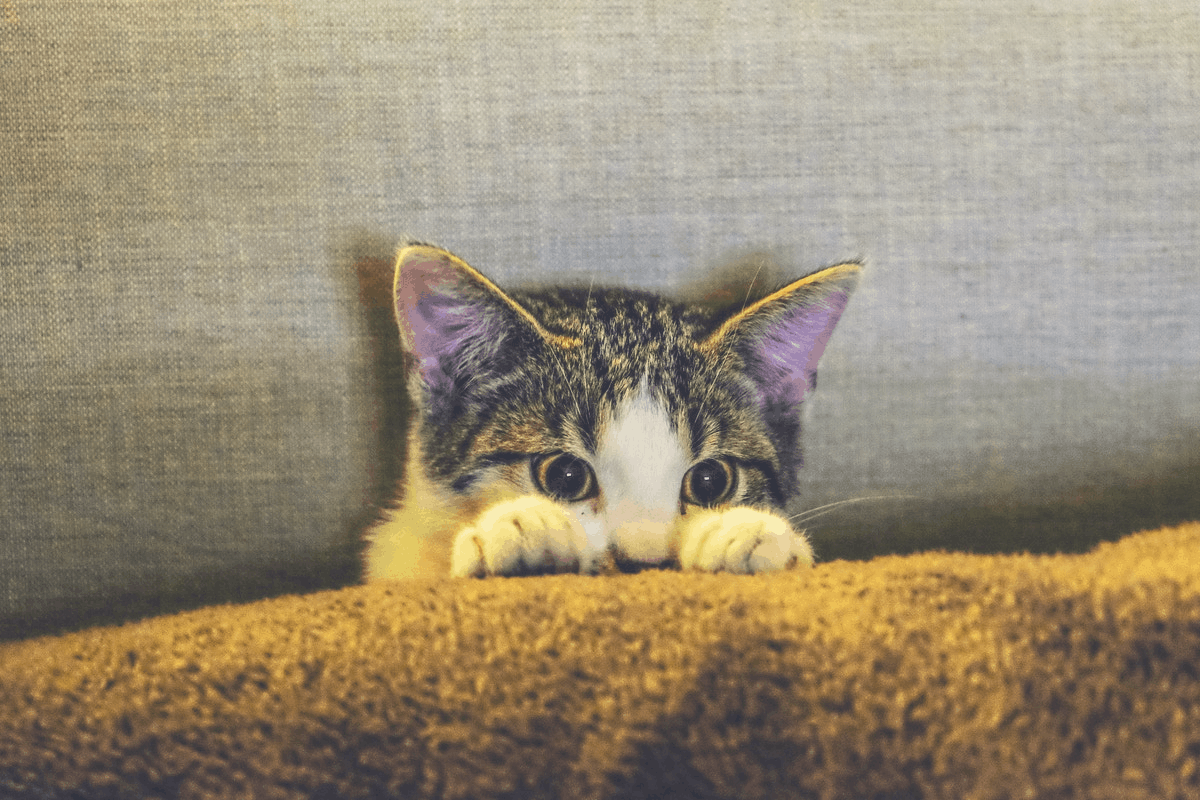
Even the most active and friendly cats can get grumpy sometimes. However, if your lively pet is showing signs of constant lethargy and grumpiness, that could be a sign of an underlying medical problem.
Good sleep is one of the most potent ways cats gain stress relief just like humans and other mammals. The sleeping difficulties caused by sleep apnea can spike the level of stress hormones in the pet’s body, leading to behavioral problems such as grumpiness and withdrawal.
5. Wheezing During Sleep
Does your feline wheeze between coughs during sleep? If yes, this could be a clue that it is suffering from sleep apnea. The main negative effect of the condition is that it can starve the lungs of the right levels of oxygen.
The wheezing sounds result from the constriction of the air passageways during the cat’s sleep, which is typical in felines saddled with sleep apnea.
Factors that risk to lead to Sleep Apnea in your Cat
Some factors can increase the risk of your beloved cat developing sleep apnea. Knowing them can help you take the right preventative measures. A few of these factors are:
1. Breed
The Spruce Pets says snoring is more prevalent in Brachycephalic cat breeds than others. This is due to their natural facial makeup which is the underlying reason behind the breed’s name. “Brachy” means “shortened” and “cephalic” means “head” which translates to short-headed cats. Thus, these cats have shortened nasal passages which can lead to a myriad of breathing problems including snoring.
If your feline happens to be any of the breeds listed below, early treatment can be crucial as soon as she begins displaying the signs of sleep apnea.
- Himalayan Cats
- Persian Cats
- Burmese Cats
2. Obesity
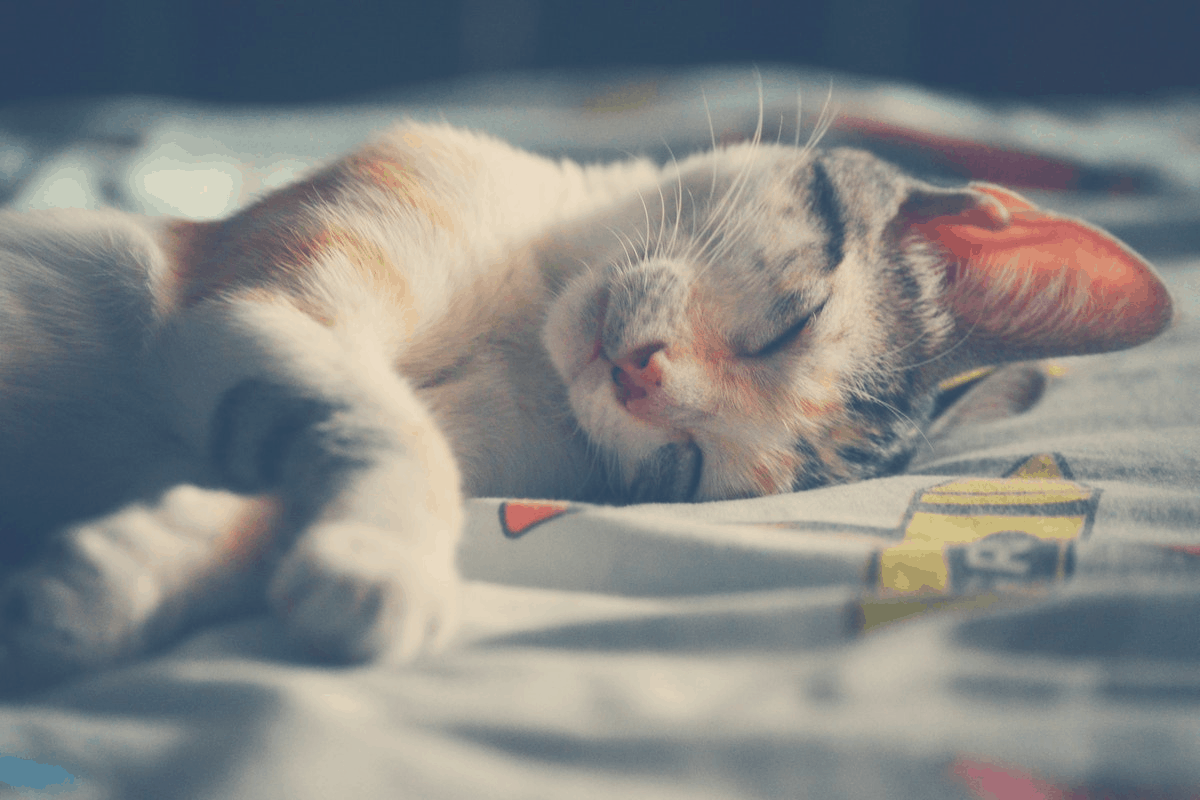
Obesity can be another common risk factor of Obstructive Sleep Apnea in cats. The larger body weight can increase the percentage of fat in the feline’s body which typically leads to higher fat deposits in the cat’s upper airways.
These fat deposits can block adequate oxygen levels from entering the lungs during sleep, leading to loud snoring and other signs of sleep apnea.
3. Allergies
Does your cat suffer allergies? If yes, that could inflame the upper airways to the point where the right amount of oxygen is starved from the body. This may translate to loud snoring and other breathing difficulties that can affect the overall quality of life.
4. Respiratory Problems
Has your feline been diagnosed with asthma or another respiratory problem? If yes, the presence of such conditions can increase the risk of suffering sleep apnea.
Respiratory problems may be caused by a bacterial or fungal infection. But, whatever the underlying cause, the cat may exhibit signs such as sneezing and coughing as well as nasal and eye discharge.
5. Sleeping Position
Cats are some of the most agile animals on the planet meaning they can sleep in a variety of angles. Sometimes, a cat may lie down in an awkward position that affects its ability to draw in adequate amounts of oxygen.
This may lead to long-term snoring particularly if the cat adopts that position by default.
How To Minimize The Risk Of Sleep Apnea your Cat
A quick look at the risk factors reveals that sleep apnea can be prevented in some situations. Here are a few ways to minimize the risk of your beloved feline suffering the condition.
1. Exercise
Regular exercise can be important if you’re serious about minimizing the risk of sleep apnea in a cat. From playing with prey toys to other forms of interactive play, a mobile cat is one that typically sleeps better and displays high levels of energy.
This can also improve the cat’s quality of life significantly, ensuring proper maintenance of its weight levels.
2. Controlled Food Portions
Obesity is a leading cause of sleep apnea which is why finding smart ways to control your cat’s food portions can be extremely important in weight regulation. Food puzzles, in particular, can slow down the feline’s eating rate and inject some adventure into its life.
These puzzles can boost the cat’s instincts and enhance its ability to hunt for food. Remember, food puzzles come in many forms so make sure to choose beginner puzzles for your cat. As time goes on and the cat gains some experience, more complex puzzles can be introduced.
3. Regular Veterinary Care
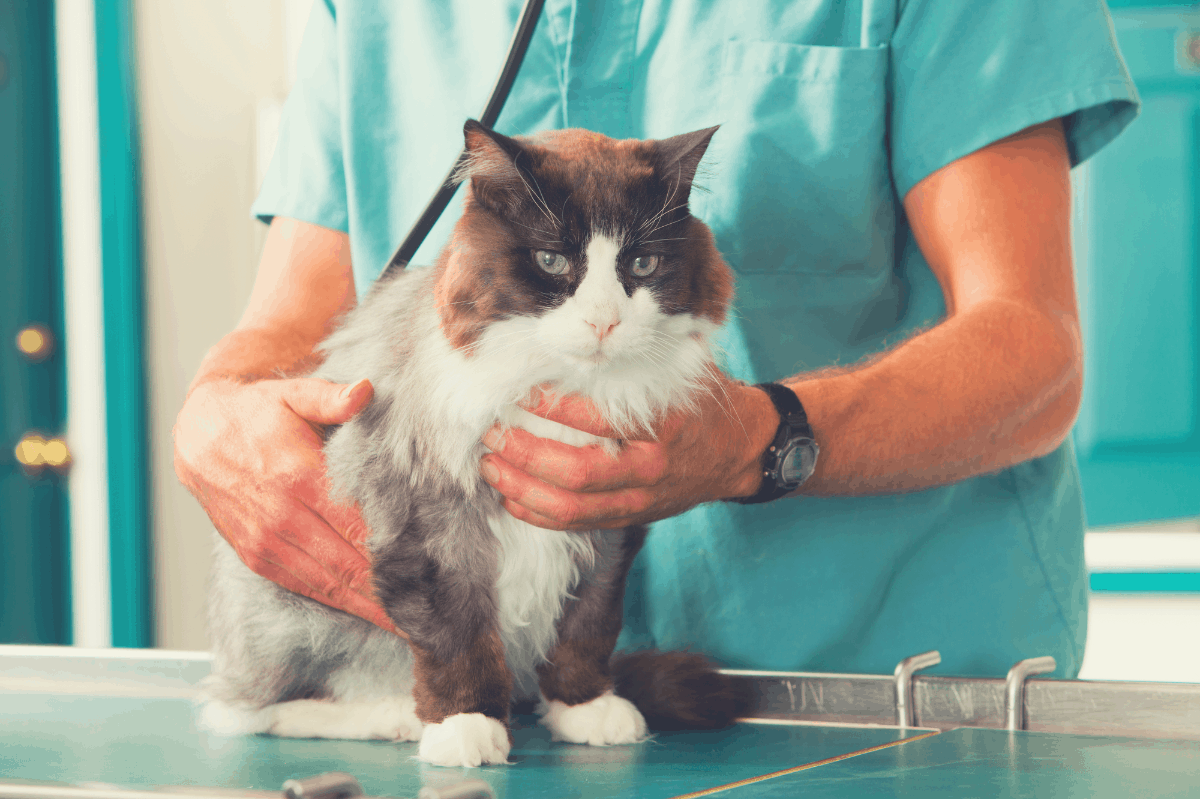
Regular veterinary care can be vital to a cat’s health in many ways. Any underlying issues that may lead to obstructive sleep apnea can be diagnosed early for proper treatment before the condition escalates.
Being proactive during these visits can make a huge difference as a pet owner. Make sure to inform the Vet of any new physical changes you may have noticed in the cat. Additionally, pay attention to the pet’s response to certain treatments and report any changes accordingly.
Treatment For Sleep Apnea In Cats
If you suspect that a cat may be suffering from sleep apnea, it is only logical to wonder whether there are any treatment options available. Here are the most popular methods Veterinarians rely on to treat Sleep Apnea in felines:
1. Surgery
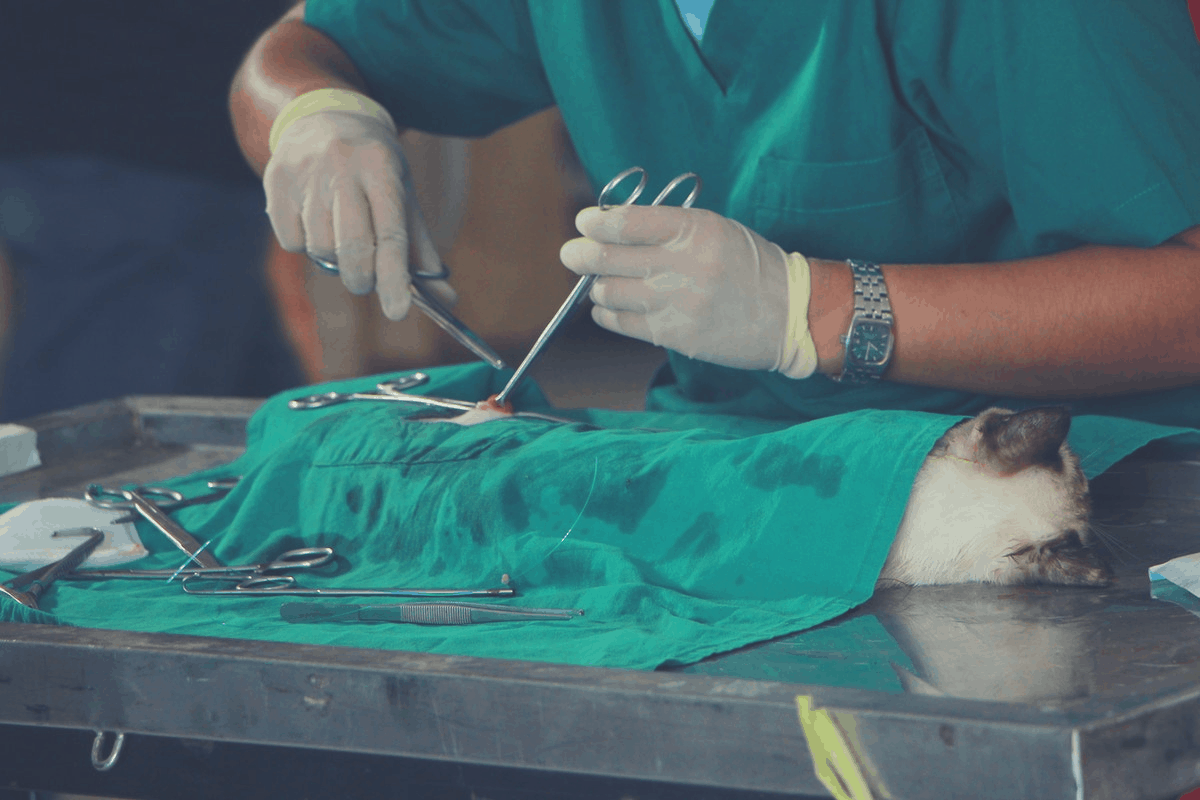
Surgery may be the most effective treatment method for sleep apnea in cats. It can correct any defects that impede the cat’s ability to draw in maximum amounts of air. Surgical procedures may not only eliminate the loud vibrating noises in the airways during sleep but they can also improve the cat’s quality of life significantly.
2. CPAP
Continuous Positive Airway Pressure (CPAP) treatment involves the use of mild air pressure to keep the airways open during sleep. The mild air is typically supplied by a CPAP machine that connects to the airways via a cord attached to a face mask.
Studies have shown interestingly positive results for CPAP treatment in cats with sleep apnea. However, A CPAP machine for cats is yet to be available on the market. Hopefully, that will change in the upcoming years.
3. Antibiotics For Allergy Treatment
As stated above, the cat’s snoring may be a result of a fungal or bacterial infection. In that case, giving the feline antibiotics can provide soothing relief from the inflammation of the airways and other symptoms associated with the condition.
Conclusion
Sleep apnea can be prevalent in cats especially those who may be overweight or suffer from chronic allergies and respiratory problems. Sleep apnea is also common in certain cat breeds such as Himalayan, Burmese, and Persian Cats.
If you notice any of the signs of the condition stated above in your cat, seeking immediate veterinary care can be crucial.
